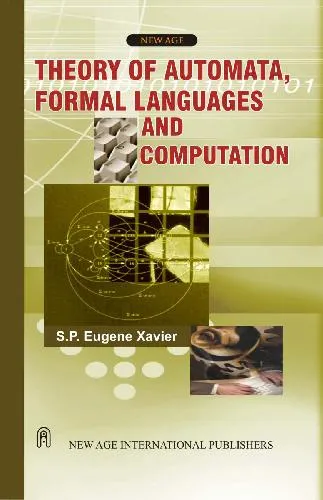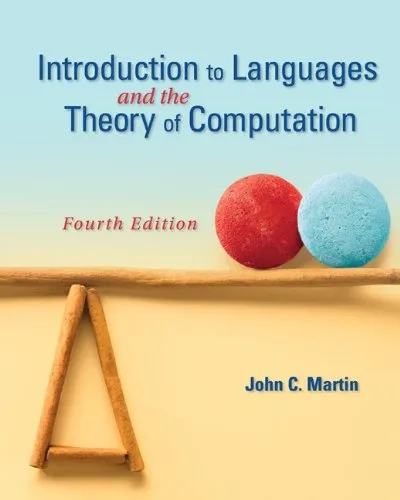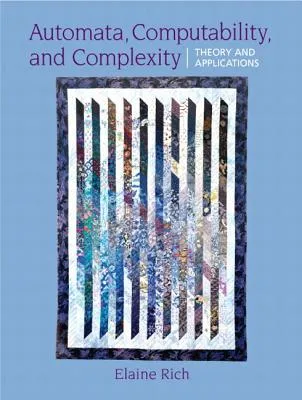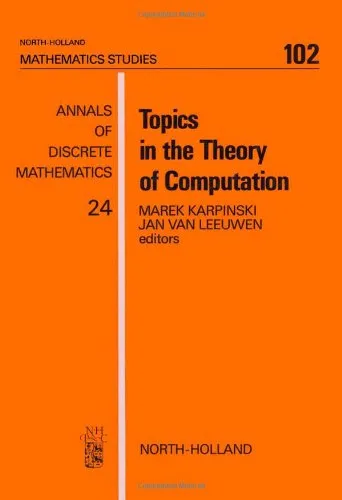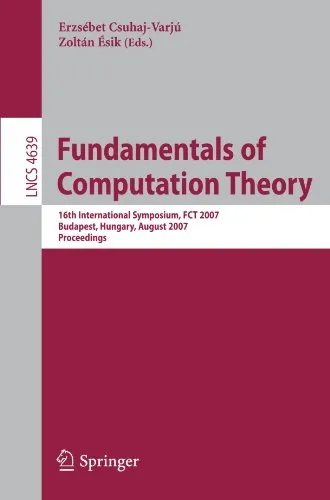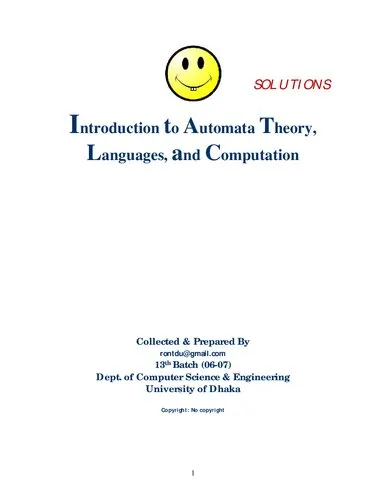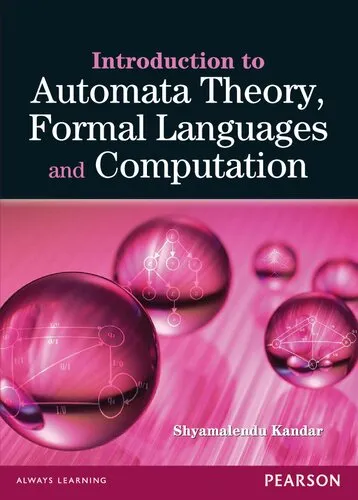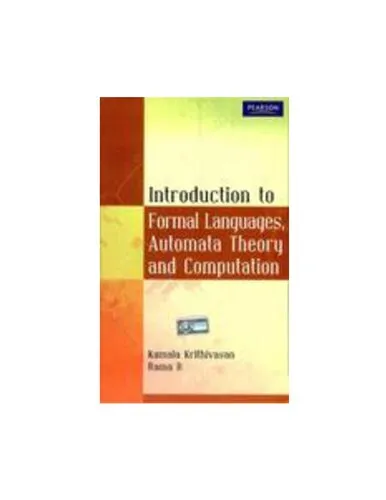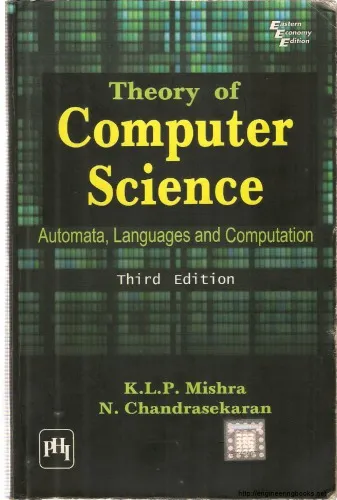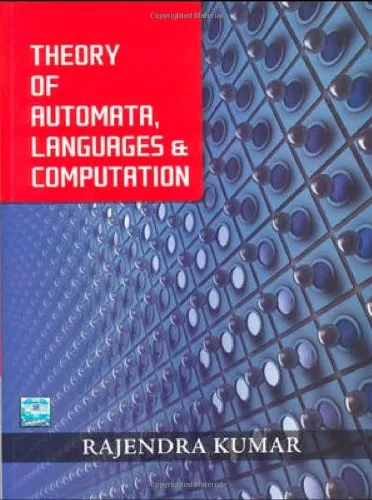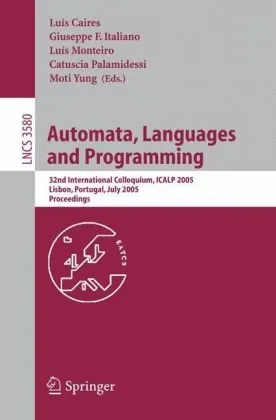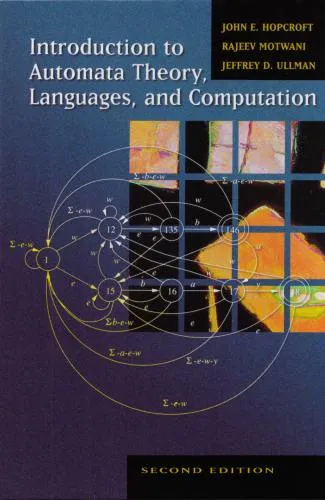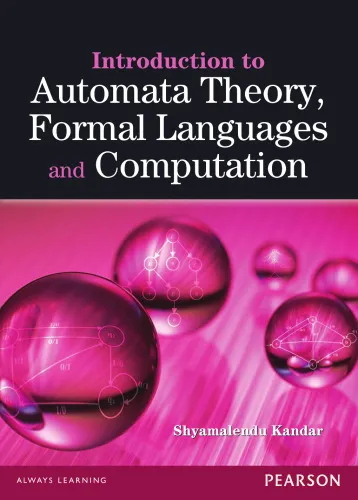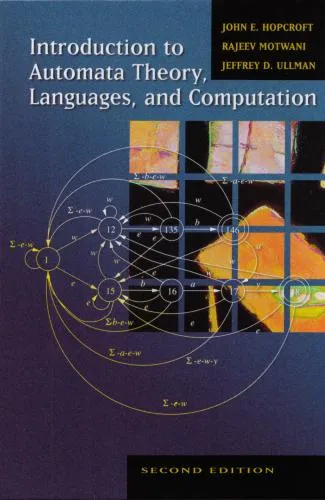Theory of Automata Formal Languages and Computation
4.3
Reviews from our users

You Can Ask your questions from this book's AI after Login
Each download or ask from book AI costs 2 points. To earn more free points, please visit the Points Guide Page and complete some valuable actions.Related Refrences:
Welcome to the comprehensive and insightful journey into the realm of computation and theoretical computer science with 'Theory of Automata Formal Languages and Computation' by S.P. Eugene Xavier. This book serves as an essential guide for students, educators, and professionals keen on understanding the intricate concepts of automata, formal languages, and computational theory. Crafted with clarity and precision, this book stands as a cornerstone for anyone venturing into the world of computation and language theory.
Detailed Summary of the Book
'Theory of Automata Formal Languages and Computation' delves deeply into the fundamental aspects of automata theory and its applications. The book is structured to provide a robust foundation, beginning with the basics of formal language theory, inclusive of grammar, syntax, and semantics. As it progresses, it intricately explores finite automata, nondeterminism, and regular expressions. The text advances into more complex constructs such as pushdown automata, context-free grammars, and Turing machines, gradually unraveling the computational abilities and limitations of these abstract machines.
This book also examines the complexity of various computational problems, providing an insightful exploration of P, NP, and NP-complete problems. Emphasizing practical real-world applications, it discusses algorithms, the design of compilers, and the underlying theoretical frameworks that support sophisticated computational tools. With an approachable writing style and a wealth of examples, this book facilitates a deeper understanding of both the theoretical and practical aspects of computer science.
Key Takeaways
- The foundational principles of automata and their role in computational theory.
- Understanding the classification and operations of formal languages.
- Insights into the applicability of computational models like finite automata and Turing machines.
- An exploration of the boundaries and potential of computational problem solving.
- Practical implications of theoretical concepts in the design of software and algorithms.
Famous Quotes from the Book
"In the realm of computation, understanding the machine starts with understanding the language it speaks."
"The beauty of automata lies in its simplicity to define complex behaviors simply through states and transitions."
Why This Book Matters
The significance of 'Theory of Automata Formal Languages and Computation' extends beyond academia. It fosters critical thinking and a deeper appreciation for the intricate tapestry of computational logic that underpins modern technology. As we navigate a world increasingly driven by sophisticated software and automation, understanding the fundamentals laid out in this book enables individuals to not only engage with the latest technological advancements but also to innovate and lead in this dynamic field.
This book is invaluable for computer science students who are laying the groundwork for a rigorous understanding of computation theory. It also serves as an excellent reference for educators who aspire to impart a thorough conceptual understanding of these complex topics. For professionals, it bridges the gap between theoretical concepts and practical implementation, providing them with the tools and knowledge needed to tackle complex computational challenges in their respective domains.
Free Direct Download
You Can Download this book after Login
Accessing books through legal platforms and public libraries not only supports the rights of authors and publishers but also contributes to the sustainability of reading culture. Before downloading, please take a moment to consider these options.
Find this book on other platforms:
WorldCat helps you find books in libraries worldwide.
See ratings, reviews, and discussions on Goodreads.
Find and buy rare or used books on AbeBooks.
1716
بازدید4.3
امتیاز0
نظر98%
رضایتReviews:
4.3
Based on 0 users review
Questions & Answers
Ask questions about this book or help others by answering
No questions yet. Be the first to ask!
